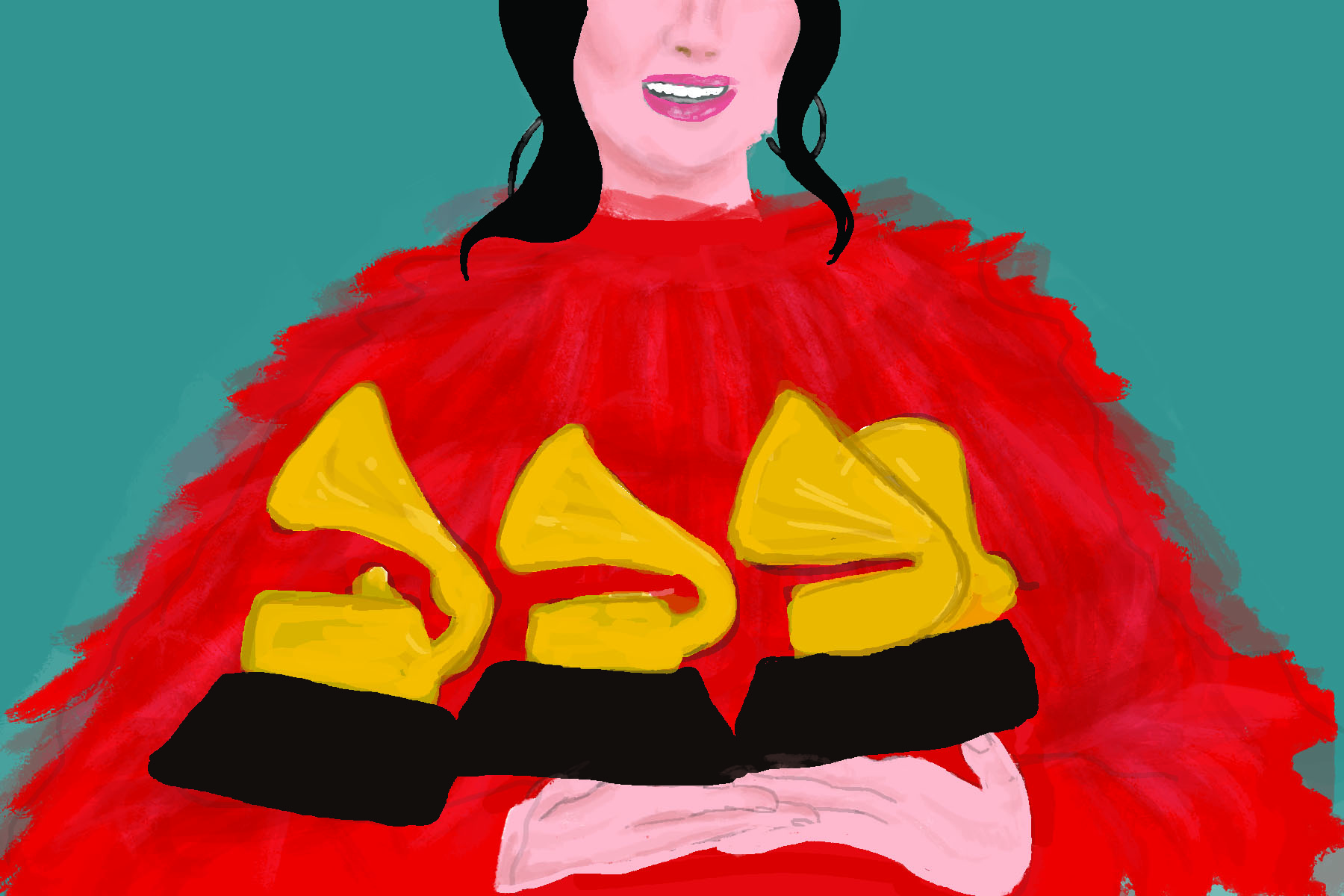Kacey Musgraves is an artist without a home.
She’s a country singer with pop star qualities. She’s a pop star who makes country music. It’s not a particularly unfriendly place to be in a musical era where the limitations of genre are quickly disintegrating and falling away.
A quick look at the most popular tracks at the moment reveals just how amorphous the world’s favorite artists have become. Ariana Grande is belting over trap beats. Halsey has an R&B-inflected hit. Post Malone is making whatever kind of music Post Malone makes.
Yet still, Kacey Musgraves is an artist very much defined by the kind of music she is or is not making. However, based on the traditional markers of widespread country music achievement, Musgraves is lagging notably behind.
On Billboard’s Country Airplay chart, which measures the most frequently requested and played songs on American country radio, Musgraves highest-peaking single was from her first album, a track called “Merry Go ‘Round,” released in 2012. The singles released from “Golden Hour,” the heavily hyped genre-busting release from the country music rebel who apparently crafted most of the album with the aid of LSD, somewhat unsurprisingly, peaked in the mid 50s.
Musgraves is an undeniably successful artist. The fluidity of her music, the ability of her music to seamlessly integrate the characteristics of both genres, has made her the music world’s latest obsession. Her latest album, “Golden Hour,” won four Grammys, including album of the year. Despite the accolades Musgraves has received for “Golden Hour” and all her previous albums (in total, she’s won six Grammys, four Country Music Association Awards and one Academy of Country Music Award), country radio refuses to make Musgraves a star.
Of course, traditional radio has essentially gone the way of floppy disks and retired past presidents when it comes to waning influence, as streaming continues to mount its empire. But in terms of its power in disseminating new music to the historically old-fashioned listeners of this historically old-fashioned genre, country radio is indispensable.
“Grammys, critical acclaim, even the quality of the music—nothing matters except how much radio play you’re getting,” Musgraves said in an interview with Vanity Fair promoting the release of “Golden Hour.”
It shouldn’t be much of a surprise that country radio has been so inhospitable to Musgraves. She has always been a left-swerving missile in the staid world of conservative country. Her single “Follow Your Arrow” gained attention for containing the line “kiss lots of boys or kiss lots of girls, if that’s something you’re into.”
Before their album of the year Grammy win for “Taking the Long Way,” the Dixie Chicks faced a similar trajectory. In a 2003 concert in London, the band spoke out against the upcoming Invasion of Iraq and said they were ashamed that the president at the time came from Texas. The ensuing media firestorm led to their songs being pulled from country radio and the group being blacklisted by stations years later. Even after “Taking the Long Way”‘s triumphant night at the 2007 Grammys, country radio still refused to play any of the album’s singles.
Like the Dixie Chicks, Musgraves is an artist confined to genre purgatory for subverting the expectations of country music. Her music is blatantly political in an era of country music that seems to concern itself mostly with dirt roads, drinking in the back of pickup trucks and being a grown adult at a raucous house party.
She’s also a woman in a genre that still has an egregious gender imbalance, and where artists like Taylor Swift and Maren Morris have notably had to cross over to pop radio to enjoy their current levels of immense success. Because of this, Musgraves will likely never thrive solely in a country music space.
“Country music is such an iconic genre. It’s songs for the working man, songs for people with broken hearts. I feel like I’m not really doing anything different. I’m just carrying the tradition on,” Musgraves told Refinery 29. “I love country music; it has my heart. If radio wants to play it, of course, that will make me happy. But getting anyone to like or to play the music will never affect the way that it comes out.”
So, what do you do if you’re Kacey Musgraves and, despite everything — the awards and acclaim, the leveling of the gender playing field in seemingly every other genre of music, the world’s acknowledgment of your undeniable superstar appeal — country radio still won’t play your music?
You just lean into everything that scared them about you in the first place. You make an album inspired by Daft Punk and Tame Impala. You speak openly about the hallucinogens you took while you made it. You don’t actively pursue radio play for any of the songs on your new album. You open for Harry Styles on an arena tour. You embark on your own sold out world tour. You bring out the winners of the latest season of “RuPaul’s Drag Race” at one of your concerts. You present at the Oscars. You win a few (more) Grammys.
Everything else, you assume, will just fall into place. Following her Grammy wins for “Golden Hour,” Musgraves’ label MCA Nashville sent her latest single, “Rainbow,” to country radio where it was added to 53 stations. The New York Times called her song “Slow Burn” one of the 25 songs most indicative of this “particular era of American life.” She was also announced as one of the artists receiving an exhibit at the Country Music Hall of Fame this year, alongside Brooks & Dunn, Keith Whitley and songwriting duo Boudleaux and Felice Bryant.
Kacey Musgraves is an artist that never needed a home. She has proven she has the ability to sustain her own career without the support and sizable influence of country radio behind her. She has latched onto one of modern music’s most unique tendencies and broken through the restrictive barriers of genre to carve out her own success. She has found her own way along that winding country road leading to music superstardom.
















